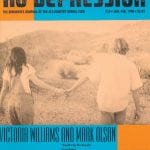Cactus Tracks & Cowboy Philosophy
It’s an irony of American tradition that many who heeded Horatio Alger’s call to “Go west, young man” immediately set about striving to get the next generation through college and into big-city jobs. The timing was just about right. According to Baxter Black, National Public Radio’s beloved “cowboy philosopher and former large animal veterinarian,” limited land and unlimited technology now make it possible for less than two percent of the U.S. population to be “directly involved in production agriculture.”
But just because you can’t go home again doesn’t mean you can’t get homesick. If you and yours have lost track of, for instance, how the remaining cattle ranchers and their hands might be getting on with their lives, Black is just the man to put you back in touch. Cactus Tracks & Cowboy Philosophy, a roundup of all his NPR commentaries, is chock-a-block with the big-hearted, proud, ornery and resourceful people 30 miles down a dirt road off any red line on a map with the Rockies on it.
Black’s real-life friends and acquaintances are the sort whose teenage daughters can be mortified by the condition of the family’s horse trailer. They’re people for whom getting dressed up means wearing new jeans, and a wedding might feature more than just one or two George Strait love songs. Dogs embarrass themselves overshooting truck beds, so drunk are they with praise for driving down a deer winged in the hunt; cowboys will go to no end of trouble to get a free meal or avoid having to open a gate; and a bachelor friend’s intimate evening drive through the back forty may be interrupted hilariously by a calving episode that will make a great story after the passage of time renders his date’s hasty — and permanent — departure a little funnier. In fact, these folks’ fortunes rise and fall almost entirely according to their ability to “get a live calf on the ground,” an event that, despite his career abetting it, still fills Black with fear and wonder.
As often as their homely anecdotes make you laugh out loud, Black’s characters inhabit a harsh world, one lacking the insulating abstractions of city life. In his pages we’re reminded that fire may be the most terrifying scourge visited on the landscape. The wily cowboy still will carry a box of matches with which to outwit that demon and save himself and his horse…perhaps. Black’s feel for fire and drought and their victims makes for harrowing reading, often through tears. For example, “Ralph’s Tree” is a sweet and heartbreaking tale of a man who, against all odds, grew a tree beside his house. Its immolation in a prairie holocaust becomes a metaphor for the death of his spirit, although the rest of him lingers in a retirement home.
Black’s detailed description of this and other fires are knuckle-whiteners. Poems inspired by the 1988 drought and the fire at Yellowstone Park launched his career at NPR, but his tales more often wring humor out of the more common wrecks of every day ranch life. He says that when he asked a producer once why he was on Morning Edition, the answer was, “Because you’re the only one we know from out there.”
The immediacy of natural events to people out there is nowhere more poignantly depicted than in Black’s poem “The Mountain”. In it, he makes his way “a’ horseback” through the worst of winter to the tree line, although despairing of being heard through the screaming wind and gnashing ice, to remind the besieged mountaintop, “Only three months to go.
“‘You’re not alone,’ I shout to him, ‘There’s others like you who make their stand upon the earth and see the battle through. Yet, I can only cringe and squeak,’ I whisper up the slope. But then the mountain answers back, ‘Go friend. You left me hope.'”




